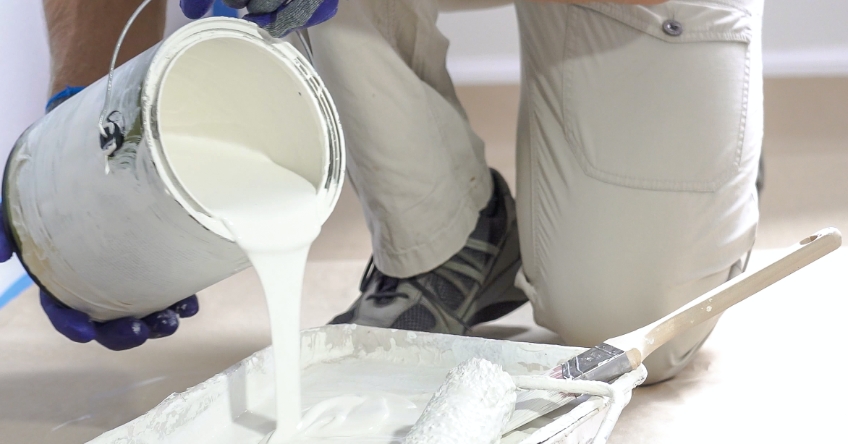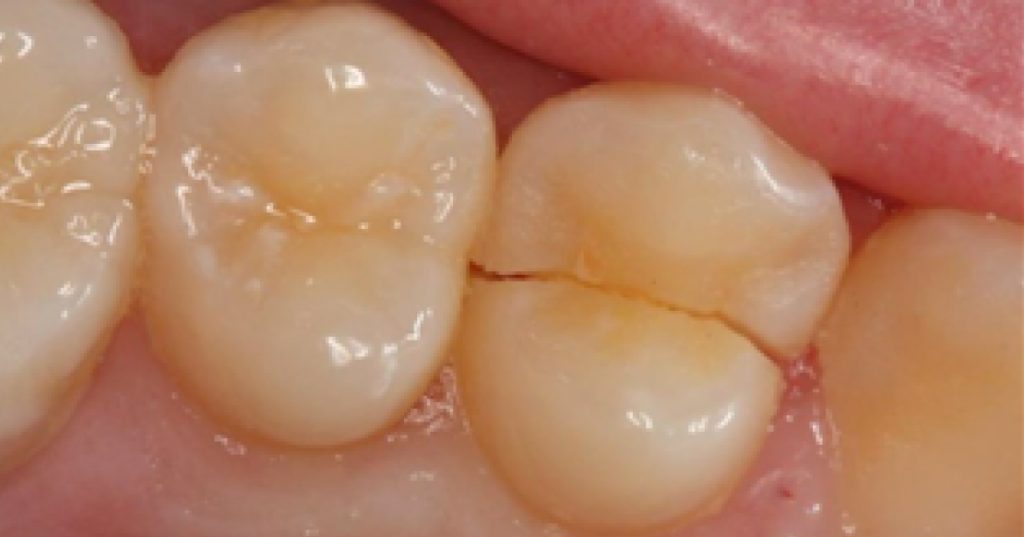Buying vs. Starting a Dental Practice: Tips and Considerations
I remember when I decided to become a dentist. I was in high school in the 1970s and had a visit with my dentist, Dr. Steinberg (no relation). He was a one-person operation and worked out of his home. He was a charming and personable gentleman who enjoyed his work. He was having fun!
When Dr. Steinberg graduated, dentists opened their offices from scratch. This mentality was not unlike that in the 1989 movie Field of Dreams: “If you build it, they will come.”
When I graduated in 1980, the field had changed. Group, insurance-based, and Medicaid/Medicare practices existed, but solo practitioners still dominated the field. At only 24 years old, I realized I wasn’t ready to own a practice and still had lots to learn. Of all the things that you learn in dental school, how to start and run a dental practice is not one of them.
I was lucky enough to attend a residency, where I was exposed to many ideas and philosophies of dentistry and practice. After residency, I worked at three practices — a fee-for-service, a carpenter’s union, and a Medicaid/Medicare practice. These experiences exposed me to what I enjoyed and what I didn’t, which were equally important.
A year later, I left all three positions and joined a two-person practice — I was the third — in downtown Philadelphia. The practice was predominantly fee-for-service, but also participated in BlueCross insurance. Two years or so into this relationship, the older dentist retired, and I was able to buy into the practice. I saw my future here.
Some 35 years ago, we realized that the insurance company’s best interest was not for the patient or the practitioner — consequently, we disassociated. My additional training and continuing education guided me in transitioning into a 100% fee-for-service practice.
My journey taught me many things, one of which is this: I believe the first step in deciding whether to buy an existing practice or start a practice from scratch is having some experience with different practice styles. Know what you like and what you do not. Talk with others — but more importantly, visit other practices.
When graduation day is some time behind you, you’ll realize it is time to work for the best person in the world — and that would be yourself!
So, should you buy an existing practice or start one from scratch?
When that time does come, should you buy a practice or start from scratch? The decision comes down to your personality and personal choice. Both can succeed and both can fail. In either case, the practice will become who you are over time. The practice of dentistry is partially about the dentistry performed, but mainly about the relationships and experiences with people.
Let’s consider both approaches in depth, starting with buying an existing practice.

Buying an Existing Dental Practice
More new practice owners are created by acquiring an existing practice rather than starting a new one. But first, let’s discuss the different practice styles that will impact your decision.
Buying an Insurance-Driven Practice
What is an Insurance-Based Practice?
An insurance-based dental practice participates in many different insurance plans. Most new patients find an insurance-based practice in their ’plan booklet,’ the choice is usually made based on geographic proximity to home or work. Some of these practices will also get new patients through marketing.
Usually, multiple patients are seen at once by one or more doctors and one or more hygienists. Many patients see the hygienist on their first visit. The first discussion of dental care and concerns is with a team member. There are usually several auxiliary team members to help support the volume of patients in and out of the office.
While there is a buzz about being busy, it can be difficult to stay on time. Profit margins are tight, and overhead can be high. The dental practice is paid through fees based on what has been contractually agreed upon with the insurance company. There may also be restrictions on how much care can be provided in a calendar year.
What to Expect When Buying an Insurance-Based Practice
Transitions in an insurance practice may be less critical than those in a fee-for-service practice. Many young dentists start their careers in these practices, and consequently, they may already be somewhat familiar with this practice style.
Working with the team. Team members may be used to having associates enter the practice. While the new owner will be their boss, they may be used to adjustments in team players and more adaptable to change. Just as in fee-for-service practices, the team is valuable in helping to continue care and the running of the office, as they are familiar with the existing systems.
Establishing expectations with patients. The patients are in the practice because you participate with their insurance plan. Usually, it is a geographic choice. As such, be comfortable with the practice location. If you were to move, would patients follow you or find a more convenient dentist in their plan?
Should You Buy an Insurance-Based Practice?
In some cases, an office manager runs the show within an insurance-based practice. For some dentists, not having this responsibility is appealing. They like that all they must do and focus on is dentistry.
In addition, patients may not have high expectations of team relationships and high-tech equipment, and treatment performed may not be met with the most intense scrutiny. Find out why many doctors are happy as insurance-based dental practice owners.
Fee-For-Service Practice
What Is a Fee-For-Service Practice?
The fee-for-service practice does not participate in any insurance plans. Agreements of care and the associated costs are agreed upon by the dentist and the patient; no limits are imposed by an insurance company. The office manages profit margins and fees.
In this practice format, doctors and hygienists usually treat one patient at a time. Because of a reduced patient flow, the office can usually operate on time with little difficulty, resulting in a calming atmosphere.
New patients find the office through referral — and in many cases, through marketing. Patients usually see the dentist on the first visit and have an opportunity to develop a relationship.
What to Expect When Buying a Fee-For-Service Practice
I have spoken to many dentists about how to become a fee-for-service practice. The easiest way to accomplish that is to purchase one. When you do, however, you must then step up your game as a leader, manager, and practitioner.
Working with the team. The team will be nervous, not knowing what to expect. Will the new owner be the same as the prior owner? Will their jobs be secure?
The truth is that your team can and should be your greatest allies. They already know how to run a fee-for-service practice. They understand customer service and that they work for the patients, not an insurance company. Address the elephant in the room with the team. Share with them that the transition will be challenging for all and that with their help, they can all succeed.
Case in point — I know one practice owner who gave a raise to everyone in the practice on day one, as he knew and had voiced that there was a lot of work ahead for him and his new team. Ten years later, he and his team have become one of his town’s premier practices.
Setting expectations with patients. Patients in a fee-for-service practice expect a certain level of care and customer service from the entire team. As one of my patients said, “I know I am paying Mercedes prices, but I also know I am getting Mercedes service.” People understand value.
Should You Buy a Fee-For-Service Practice?
If you think you want a fee-for-service practice, remember this: A fee-for-service practice is not for everyone. If you are the personality that aspires to have a relationship-based practice with a high level of care — and you are willing to work to constantly better yourself, your team, and your office — I believe a fee-for-service practice is for you.
Buying a Blended Practice
What Is a Blended Practice?
In a blended practice, there is a mix of fee-for-service patients and patients from insurance plans. Consequently, this practice shows some characteristics of both an insurance-based and fee-for-service practice.
Fee structures in these practices vary. Insurance plan patients in these practices usually enjoy a similar level of care as fee-for-service patients, but their costs are reduced. Some blended practices will become fee-for-service over time, and some may shift to more insurance dependence.
What to Expect When Buying a Blended Practice
These are the most common practices in dentistry and, as such, the most common practices bought and sold. Some are more heavily insurance-based, some strike an equal balance, and some participate with only one insurance plan.
Working with the team. The same scenario exists here as with insurance-based and fee-for-service practices. The team knows how the office has been running — your job is to learn from them. Find out how the practice created its success and duplicate it before you modify any systems.
Establishing expectations with patients. The office vibe can be closer to a fee-for-service practice than a purely insurance-based office regarding patient care. Usually, this office has one way to deliver its services and sticks to it, whether receiving a full fee or just a fraction of it.
Managing profit margins. The office must understand the insurance plan(s) it participates in and ensure blended profit margins. When a practice takes the time to separate the fee-for-service numbers from the insurance plan numbers, eyes are usually opened. This is often when some insurance plans may get eliminated.

What to Consider When Buying a Practice
What is the most critical aspect of buying a practice? It really depends on who you ask. Buying an existing practice isn’t always a turnkey experience. There will be patients, experienced staff members, equipment, dental systems, and a source of income, but there are plenty of factors to consider.
Practice style and philosophy. Today, many prospective dental practice buyers will contact a practice broker to help in their search. If you have a practice broker who knows the practice well, they can give you insights into the practice style and philosophy.
Facility and equipment. If you speak with an accountant, attorney, or banker, they may look at the numbers, facility, location, and equipment. If the dentist owns the practice real estate, then the rent or purchase will be discussed and outlined in the contracts.
Office culture. I personally believe the office culture may be the most important part in considering your purchase. It should align with your thoughts and your aspirations of the future as a dentist. Who you are today is not who you will be five years from now.
Practice location. I also believe location is important in where you want to live and raise a family. Being exposed to a practice for sale feels like looking for a home to purchase — while location is a key factor in buying a home, it is also an essential aspect in buying a dental practice. Since most people today do not practice outside their home like my childhood dentist, commuting time will be a consideration.
Tips for Buying a Dental Practice
Consider past performance. The best prediction of the future is what has happened in the past, so everything should be considered. While buying a successful practice will not guarantee instant success, it is a good indication of its potential.
Get to know the existing practice owner. Spend a reasonable amount of time with the seller — get to know who they are and focus on exploring if your thoughts and philosophies align. If they do, the transition will probably be easier. If they don’t, you may have more work than expected or surprises that won’t make you smile.
Keep your eyes out for mentorship opportunities. When buying a dental practice, you can also buy a mentor. Finding a good mentor as a dentist takes time and effort — this is why knowing the person is so important. If the seller is willing to be a mentor, then you would be foolish not to take advantage of their knowledge.
Carefully consider the transition timeline. You can negotiate how long the seller will remain after the sale in your purchase contract. I know some buyers feel they are looking for a quick transition so the practice and production will be theirs, but most sellers will stay on for a period with reduced hours. Having the seller stay on for a year as a mentor and cheerleader for you is key to your early successes. The seller can help you develop relationships with your patients and your team.
You can take advantage of the time with the seller. In the first six months, you will be overwhelmed with everything. Every patient you see is a new patient experience. You may not have the ears or eyes yet to hear or see what the seller offers. Pay attention to what the original practice owner can teach you — what they accomplished convinced you this was the practice for you.
Make the practice your own. Over time, the office you purchased will morph into your personality. It will differ from the prior owners; a difference doesn’t mean bad. As the new practice grows and becomes profitable, you may build at a new location or have an office renovation at your current location. Embrace the opportunity to rebrand the office to match your vision for the future.

Starting a New Dental Practice (From Scratch)
While starting a practice from scratch can be challenging financially and emotionally, it may also be the most rewarding. The main advantage is that you have total control from the beginning.
While the excitement of where to build a practice, what equipment to buy, or how to decorate may be what keeps you up at night, some may spend those waking hours worrying about where new patients will come from, where they’ll find a team, and whether they’ll have enough money to pay their bills. There’s plenty to consider — and here’s where to start.
Tips for Starting a Dental Practice
You can do your homework to secure finances. While many dentists ask first where they should build a practice, the real question is where you’ll acquire the money to open a practice. Before you talk to banks, develop a game plan of what you envision. Have lots of details and be enthusiastic. Tell them how you plan to succeed. You must sell yourself and your plan. A bank is more likely to lend you money when it feels secure that it will get its investment returned.
Employ a variety of strategies to bring in new patients. The easiest way to get patients into the office is to sign up with insurance plans. Send mailers to people in your area — while this is low tech, it’s not a significant investment and gets your name out in the community. While potentially costly, digital marketing can also be productive. You may want someone internal or external dedicated to getting your name and abilities out there.
Spend quality time with existing patients. In the early days after starting a practice, spend longer amounts of time with the patients you do have to develop relationships. Tell them you would be glad to see their friends and family. The easiest way to get something is to ask for it.
Nurture your clinical network. Reach out to all the specialists in your area. Meet them and tell them that you opened a new practice. Let them know what you envision for the practice and how you plan to grow relationships. Let them know what makes you different than the other dentists in the area — and ask them to refer a patient when they can. To put down roots fast, consider relationships.
Don’t rush the transition. You will most likely have one or more part-time jobs in other practices to supplement your income. As your practice grows, the time you work for others will reduce until you work only in your practice.
Consider buying vs. renting. If you start from scratch, you will be looking for a location to rent or buy. While many practice owners will rent space for their career and feel happy with this decision, having a bigger bank account is also nice.
If you can buy the real estate, do so — and the sooner the better. While this will add some financial stress, the rewards of working for yourself and watching your nest egg grow will significantly offset the early stresses. Plus, it’ll set you up nicely for retirement from your dental career.
What to Consider When Starting a Practice
What is the most important aspect of starting a practice? Your approach will depend upon your experience in dentistry and what you hope to achieve as a practice owner.
Starting a practice as a new dentist. If I were a young dentist looking to start a practice (in this example, let’s say it’s a fee-for-service practice). I would look for the geographic area where I wanted my practice to be located. I would then reach out to existing general or specialty dental practices that may have some space and time to rent.
This scenario reduces my overhead costs with an instant office until I can build my own office. It may also allow me to “rent” some team members who are looking for additional income. Plus, I may not need to seek out a bank for a loan.
Be creative. You have nothing to lose by trying to talk to other dentists who may want to reduce their overhead. They may appreciate your initiative.
Starting a practice as a seasoned dentist. If I were a seasoned dentist with a good patient following and some predictable production, I would get loans and build my “Taj Majal” practice. From there, I’d follow the same steps as a new dentist by contacting local doctors and building relationships and new patient flow.

Final Thoughts From a Veteran Practice Owner
The stories and advice I share here reflect just one person’s thoughts and observations from a 40+ year career in dentistry. If I could stimulate your thoughts and ideas in any way — and potentially inspire you to create your ideal dental practice — then I consider this article a success. All the best on your journey — may it lead you to where you want to go!
SPEAR NAVIGATOR
Transform how your practice runs by engaging the team through
coaching and training
A guided path to excellence through structured coaching and self-guided resources that will align your team, streamline processes and drive growth. Transform your practice by implementing Spear’s proven playbooks for developing and retaining a high-performing dental team.

By: Carl Steinberg
Date: November 1, 2021
Featured Digest articles
Insights and advice from Spear Faculty and industry experts



